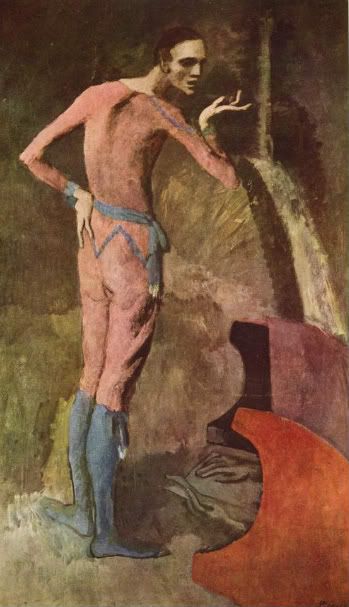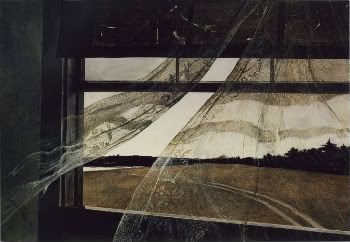There's a moment in the summer, yet before the summer begins
When the sun is going down and the sticky sweat on my brow does not exist
When the humid is high and my hair becomes a frantic lion's maine
When the cares of my mind have easily disappeared
And the sound outside is the perfect summer sound of complete Coral Gables silence
Where the air in my ears becomes the air in the palm trees
Where my footsteps fail to make a sound as the invisible birds sing their song of taunting
Where my dogs nails on the pavement become crunches in the grass
Where the sky above becomes it's infinite reality, and it's blue color seems to coat the day in mist
And where the giant tree on the corner of the street
With it's branches that sway to the sound of the wind
Where from afar looks like the perfect cloud that my body could float upon
And from up close looks like a city bigger than all of Miami could fill.
With it's intricate roads made of wood and buildings made of leaves and branches
Yet so quiet in its Coral Gables silence
Wednesday, April 27, 2011
Friday, April 22, 2011
Oprah and Barbra Walters
One really has to admire her.
More Jottings
Jottings from my trip to the Met today. (I’ve added a picture to brighten up the blog.) These are quick, spontaneous, and informal. Do not expect conventional grammar and usage.
The Little boy on the Platform—
There is a little boy on the platform, a little angel: jasmine skin, a soft grey vest, and little blue veins.
Tapestry Room From Croone Court—
A secret room with tapestried walls. Parrots; a floral chain festooned along the upper edge of the wall; bunches of ruddy flowers—reds, pinks, fuchsias, creams—towering out of urns, swelling at the corners—little gardens at the edges—clustered firs, ferns; swallows soaring across the red. Or, at least they appear to be swallows. Who can tell in this light? Dim, scant. And chairs along the edges.
A great red room: vivid contours, empty—empty in the most luxurious sense of the word.
Some years ago, an earl lay lazily on the carpet gazing at the birds (the ones embroidered on the tapestry), his Latin book terribly neglected. The Earl and the tapestry room; the faint, warm glow of the crystal chandelier.
A Hall through Ancient Egypt—
Walking along the hall it becomes clear what palate the Ancient Egyptians preferred. Wheat yellow—black, blue, green, and the color of the Egyptians themselves: clay-colored people, flower-pot clay, pueblo clay. We see them in the palace, in the fields, on their boats. Full, white eyes on profiled faces.
Walking along the hall it becomes clear what palate the Ancient Egyptians preferred. Wheat yellow—black, blue, green, and the color of the Egyptians themselves: clay-colored people, flower-pot clay, pueblo clay. We see them in the palace, in the fields, on their boats. Full, white eyes on profiled faces.
I have settled in this room because there is a round couch in the center. Here I sit—the limbs relaxing—surrounded by scenes and intrigues—the sublimest paint, gilt frames.
Let us fix our eyes on this painting in front of us—the tallest in the room, the most lavishly framed… Three women on a couch. One looks here, another there; the third, straight into the sitter’s eyes: a vague request, an inscrutable comment. The sisters bask in whiteness, radiant in the cheeks, at the chests—all in the black-green vacuum of the parlor: fresh white hyacinths waiting to be brought.
Beside the sisters, a duchess with her little boy, her little lord. Her dress bursts at the bottom into a feathery fiasco: black raven feathers.
Bocklin’s Island of the Dead—
The façade is inscrutable. An island with a forest—pines so dark they become profound.
The Actor (Picasso)—
Greens, grey, pink, blue, peach, red. Acting with the hands, one held akimbo, the other—the other up, summoning, “Come here.” The back is slightly hunched. The actor: alone in his studio, all pink and blue, reciting and reciting, the hands dancing here and there.

[This piece looks quite different on the museum wall. I would have written something else, if I had only seen this picture of it.]
Grapefruit juice. Cherry tomatoes. Little balls of Mozzarella. Chocolate chip cookies.
The Concourse—
The concourse, quivering below its cerulean firmament, grown dissipated with the noon. One could comment on the people—on the way they begin to resemble insects, little gears in a mechanism—but let us skip this. There comes a point when there are so many people that they cease to be of interest—they cancel each other out; let us therefore ignore them; cast our eyes on solid things. In a concourse where people are always scurrying this way and that, it is only natural that our eyes settle on the stiller, unmoving things.
+ The primordial clock, four-faced, at the center of the concourse.
+ The flag, with its candy-cane stripes and fifty, little stars
+ The chandeliers that hang like giant Christmas ornaments from some prim and aloof above.
Bought a book on Ancient Egypt. Adolf Erman's Life in Ancient Egypt.
Bought a book on Ancient Egypt. Adolf Erman's Life in Ancient Egypt.
Tuesday, April 19, 2011
!!!!!!!!!
N. & M.,
Behold! Roger Mason in a spoon show off
A N D . . . He has his own website with the most unexpected photos
http://www.gazettegreenwood.net/an2004/n57/itv-mason-eng.html
Behold! Roger Mason in a spoon show off
A N D . . . He has his own website with the most unexpected photos
http://www.gazettegreenwood.net/an2004/n57/itv-mason-eng.html
Words on Duras’s L’amant (The Lover)
Fanning through the pages of Ms. Duras’s novel—the book held close to my face—I am enraptured. The scent of clean linen, soft linen, immaculate linen, neatly folded in wooden drawers, little bars of soap tucked neatly within (where?). My great aunt pacing about the house. White hair and little worried eyes—blue as a blue parrot. Mexican Tile, cake, puzzle boxes, photo albums, black-and-white photos of my great aunt, my ancestress, in the Canary Islands, a kerchief tied around her head.
But this is only the scent of my paperback copy. The tone and content of Duras’s novel are quite antithetical to all this ‘clean linen’ ‘Mexican tile’ stuff.
“As seamless and polished as a peal,” says the Boston Herald.
The novel’s central characters are unnamed, but we can identify them. They are Duras’s family, her Chinese lover, and Duras herself.
There she is. 15 ½. Crossing the Mekong river from Sadek to Saigon in current-day Vietnam. She wears her gold lamé shoes and her man’s fedora hat. The fedora makes her feel whole. It completes the inadequacy of her girlish body. “With the shoes it must have been the same, but after the hat. They contradict the hat, as the hat contradicts the puny body, so they’re right for me.”
We begin reading the lover, and find ourselves on the threshold. The threshold between Marguerite’s girlhood and her womanhood. (She is 15 AND A HALF.) The threshold between love and sex, between this side of the Mekong and that side, the threshold between the privacy of the Chinaman’s dark, little room and the din of the city.
Duras recalls her affair with a wealthy Chinaman when she was a young, poor girl living in French Indochina. Her prose is, as often noted, “spare” and “emotionally charged.”
“The shapes of men’s body’s are miserly, paternalized.”
“I'm worn out by the beauty of Hélène Lagonelle's body lying naked against mine. Her body's sublime, naked under her dress, within arm's reach. Her breasts are such as I've never seen. I've never touched them. She's immodest, Hélène Lagonelle, she doesn't realize, she walks around the dormotories without any clothes on. What's the most beautiful of all things given by God is this body of Hélène Lagonelle's, peerless, the balance between her figure and the way the body bears the breasts proffered to the hands, this outwardness held out towards them."
Monday, April 18, 2011
A Picture and a Story
So the window had been left open after all. There had been some whispering earlier at dawn, when the sky was soft and pink, as to whether it was such a good idea. “What if it rains, Lizzie?” “There’s hardly any chance of that. Come.”
The bag was filled to the top: fresh, white towels and paisley bathing trunks—there were big hats and dark glasses, containers with cheese, with grapes, with chocolate cookies, the French ones avec Le Petit Ecolier. A big umbrella came towering from the bottom, too.
“Are you sure about the window, Lizzie?”
“Of course I am. Come.”
Off they went, with a flicker of the engine, motoring along: ochre fields, charcoal houses, an incessant row of tall, rustic pines.
And the window had been left open after all. Wide open, like a face when it yawns, like a soul left ajar.
The wind floods into the room with a roar, rousing the curtains. It sends them splashing, pondering.
Hours pass, pass, pass, and the house remains calm, chill; a strange sense of sleep reins over the house—drowsiness drifts to slumber.
The hours pass, one after the other.
The motor. The car clattering home. The ochre, the pines, the charcoal houses.
“I told you it wouldn’t rain. But shut it now. There’s something of a draft.”
Sunday, April 17, 2011
The whole world is upside-down, but sometimes things manage to turn out right-side-up.
Monday, April 11, 2011
I want to travel far away: Africa, Italy, and Spain. I just want to explore and disappear from how upsetting I seem to be here. Forgive me, please as I run away. It's just too painful not to.
Tuesday, April 5, 2011
Friday, April 1, 2011
Subscribe to:
Posts (Atom)













